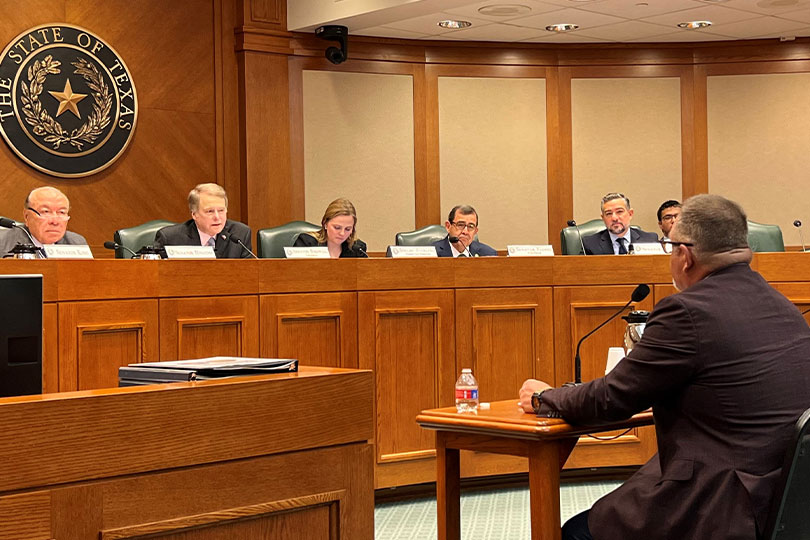By Julie Tomascik
Editor
Texas farmers and ranchers who live and work near the southern border shared the severity of property damages caused by foreign nationals trespassing on their land after they’ve illegally entered the U.S. from Mexico.
They testified earlier this month before the state Senate Committee on Border Security and the House Committee on Judiciary and Civil Jurisprudence, supporting bills that would help landowners recover from property damage caused by illegal immigrants.
John Paul Schuster, a rancher from Bracketville, told the Texas House committee that HB 73 would help ensure livestock owners have liability protection when trespassers, or a third-party, cut or damage fencing.
“We deal with damage caused by criminals and trespassers trying to escape law enforcement,” Schuster, who is also president of Kinney-Val Verde County Farm Bureau, said. “To get away, criminals will often trespass onto agricultural land, causing damage to fencing and fields. Damages are also caused by trespassers on foot.”
Homes and barns are vandalized. Equipment and vehicles are stolen. Clothes, backpacks, other items and trash are left behind in the “camps” as illegal immigrants move through their property, leaving farmers and ranchers left to clean up the mess.
“The current situation on our nation’s border is a serious burden for hardworking farm and ranch families. HB 73 would help address at least one of those burdens faced by farmers and ranchers,” Schuster said.
The border crisis is a concern shared by those who live and work in West Texas, too.
Texas Farm Bureau District 6 State Director Warren Cude testified before the Senate committee on the border crisis faced by farmers and ranchers, and the need to provide assistance to those affected by property destruction.
SB 1133 would require the Texas attorney general to establish and administer a grant program to compensate landowners who suffer property damage on agricultural land by a trespasser.
“The crisis at the Texas–Mexico border is a real issue that is impacting my family and everyone farming, ranching and living, not only along the border, but almost all parts of Texas, including West Texas,” said Cude, who raises sheep and cattle in Fort Stockton.
The crisis along the U.S-Mexico border threatens their personal safety, overwhelms local resources and causes serious financial hardship and disruption.
“We deal with damage caused by criminals, trespassers and traffickers trying to escape law enforcement on an almost daily basis,” he said. “Farmers and ranchers must pay for the damages that are caused by this criminal activity, and the costs associated with the repairs can add up quickly.”
Damages to the fences can also result in serious accidents if livestock get loose on roadways, leaving farmers and ranchers to face liability for those accidents.
“The current situation on our nation’s border has resulted in a serious financial burden for hardworking farm and ranch families. SB 1133 would bring much welcomed relief and help address this ongoing issue being faced by farmers and ranchers,” Cude said.
Landowners across the state would be eligible for the program so long if the damage was related to drug smuggling/trafficking, human smuggling/trafficking and evading arrest, as a result of the border security issue.
TFB continues to advocate for a long-term solution to the illegal immigration crisis that will effectively help farmers and ranchers in border towns and counties.
For more information on border security impacts, visit TFB’s webpage at texasfarmbureau.org/border-crisis-impacts.

